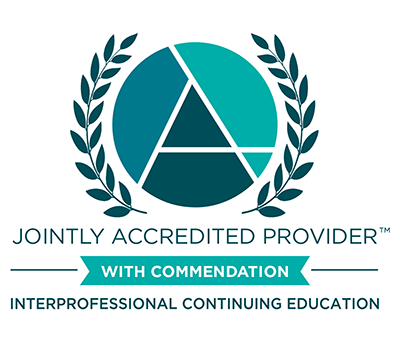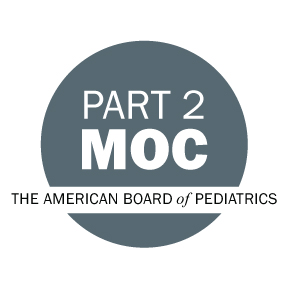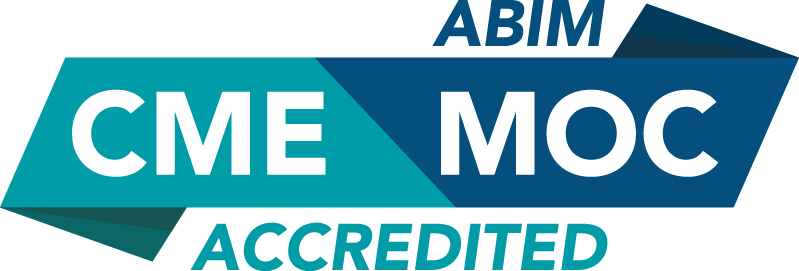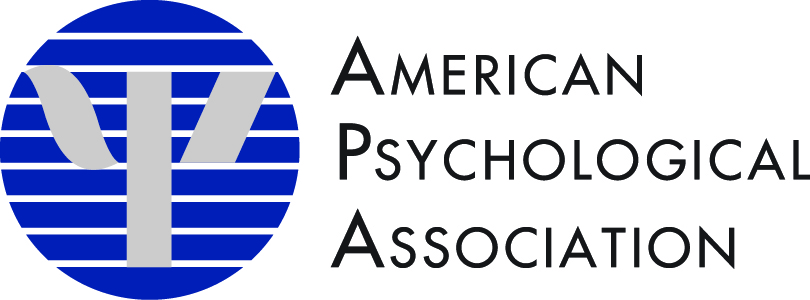
2024 Down Syndrome Medical Interest Group-USA (DSMIG-USA®) Annual Symposium
Jointly Provided by
- The Down Syndrome Medical Interest Group-USA (DSMIG-USA®)
- University of Wisconsin–Madison Interprofessional Continuing Education Partnership (ICEP)
Format
The symposium will be held in-person only.
Location
JW Marriott Phoenix Desert Ridge Resort & Spa
5350 East Marriott Drive
Phoenix, Arizona, USA 85054
https://www.marriott.com/en-us/hotels/phxdr-jw-marriott-phoenix-desert-ridge-resort-and-spa/overview/
Hotel Rooms
The JW Marriott is now full. NDSC is offering the following overflow options. NDSC will also be offering a shuttle throughout the weekend starting on Thursday:
For any questions, please contact Emilie at [email protected].
Description and Intended Audience
The Down Syndrome Medical Interest Group-USA (DSMIG-USA®) Annual Symposium provides an interdisciplinary forum for sharing of knowledge and experiences related to the clinical care of children and adults with Down syndrome, clinical research related to Down syndrome, and the development of Down syndrome clinics. The intended audience is DSMIG-USA members and other health professionals working and caring for people with Down syndrome including physicians, research scientists, nurses, nurse practitioners, Down syndrome clinic coordinators, psychologists, dietitians, occupational therapists, physical therapists, speech-language pathologists, social workers, and genetic counselors. Residents and trainees are also welcome to attend.
Learning Objectives
As a result of participation in this educational activity, members of the healthcare team will:
- Identify best practice management strategies for individuals who have Down syndrome and their caregivers
- Recognize and discuss trends in care for people with Down syndrome with interdisciplinary colleagues
- Formulate best practice care plans with interdisciplinary colleagues to incorporate into their practice
Elements of Competence
This continuing education activity has been designed to change learner competence and focuses on the American Board of Medical Specialties areas of medical knowledge, patient care and procedural skills, and practice based learning and improvement. This activity also focuses on the interprofessional competencies of interprofessional communication, roles/responsibilities, and teams/teamwork.
Symposium Fees
Group Discount:
$25 off per registration when two or more register from the same organization! Request Group Discount. This coupon code is only eligible with member and non-member rates (it cannot be used with the student/trainee rate).
Early Bird Fees (on or before May 31, 2024): Use Coupon Code 2024DEB
- Members of DSMIG-USA® in good standing: $325
- Non-members: $400
After May 31, 2024:
- Members of DSMIG-USA® in good standing: $350
- Non-members: $425
On-Site Registration Fee:
$425 (for everyone)
Student/Trainee:
- $199
Welcome Reception:
$40
Saturday Workgroups:
$25 each
Gratis Registration + Welcome Reception For:
- Scholarship Recipients
- Rising Star Scholarships
- Non-Member Speakers
Contact Emilie Perkins ([email protected]) regarding gratis registration
Cancellation and Refund Policy
Requests for cancellation must be submitted in writing to [email protected]. Cancellation requests received at least 96 hours prior to the symposium will allow a full refund except for the nonrefundable processing fee of $50. No refunds will be made for cancellations received less than 96 hours prior to the activity start date.
For Further Information
For symposium information email Emilie Perkins at [email protected]. For registration assistance, email [email protected].
Friday, July 26, 2024
ALL TIMES ARE MOUNTAIN STANDARD TIME
| AM | |
| 8:00-8:10 | Welcome and Announcements, Katie Frank, PhD, OTR/L |
| 8:15-9:00 | Developing Capacity for Community-Based Participatory Research - A Community Research Advisory Board (CRAB)-Led Initiative, Dara Mendez, PhD, MPH; Mario Browne, MPH, CHES, CDP; Roderick Blair, Aurelia Carter |
| 9:05-10:05 | Car Seats, Booster Seats, and Seat Belts; How to Make Them Work in Down Syndrome, Marilyn Bull, MD, FAAP, CPST; Anthony McGovern, MS, OTR, CPST |
| 10:05-10:20 | Break |
| 10:20-11:05 | The INCLUDE Project and Clinical Cohort Studies: How DSMIG Can Partner with the NIH to Increase Representation, Meghan O'Neill, MD, FAAP; Melissa Parisi, MD, PhD |
| 11:10-12:10 | Top Posters, Andrew McCormick, MD |
| PM | |
| 12:10-1:10 | Lunch |
| 1:15-2:45 | Supported Decision Making Joint Session, (Noemi Spinazzi, MD, Moderator); Andrew McCormick, MD; Jon Meyers; Carolyn Tellalian, LCSW |
| 2:45-3:00 | Break |
| 3:00-3:45 | Sedation and Down Syndrome, James Hunt, MD |
| 3:50-5:05 | Part 1: Growing Pains: What We Know About Growth Hormone and Down Syndrome & Reaching Part 2: New Heights: Research on Musculoskeletal Abnormalities and IGF1 Signaling in Down Syndrome, Tariq Ahmad, MD; Joaquin Espinosa, PhD, Noemi Spinazzi, MD; Larry Suva, PhD |
| 5:10-5:55 | Practice Changing Articles - Update in the Medical Literature, Peter Bulova, MD; Kishore Vellody, MD |
| 5:55-6:00 | Closing Announcements, Maria Stanley, MD |
Additional Activities
Thursday, July 25, 2024
The Thursday activities are not accredited for continuing education credit.
11:00 AM-12:00 PM Medical Curriculum Workgroup; Leader: Kristie Marble, DO, FAAP
3:00-4:30 PM Therapy Workgroup; Leader: Helen Milligan, PT, MPT
The Therapy Workgroup is a community within DSMIG-USA whose members are therapists and/or educators in the areas of Occupational Therapy, Physical Therapy, or Speech Therapy. The group has an interest in advancing knowledge regarding best practices as it relates to therapy when treating those with Down syndrome considering commonly seen issues which may respond to therapy interventions at various ages.
3:00-4:30 PM Clinic Support Committee; Leader: Mary Stephens, MD, MPH, FAAFP, FAADM
This meeting, previously for Clinic Coordinators only, is now for any Down syndrome clinic staff member (new or seasoned) interested in receiving guidance and/or support for clinic development, management, or operations. During this meeting, attendees will learn about updates on the clinic support section of the DSMIG website, and then share needs and challenges, program ideas, and success stories.
5:00-5:45 PM Project ECHO; Brian Chicoine, MD; Hannah Graham, MD
A 2021 study estimated that only 5% of adults with Down syndrome in the United States have access to a specialty clinic for adults with Down syndrome. While a comparable study of pediatric Down syndrome specialty clinics has not been conducted, the experiences of many DSMIG-USA members suggest that there is also inadequate access to pediatric Down syndrome clinics. In an effort to improve the medical care of individuals with Down syndrome who do not have access to a clinic and to support their healthcare providers, DSMIG-USA developed Down Syndrome Project ECHO in 2023. This presentation will provide a mock session of a Project ECHO meeting and demonstrate how an expert panel and other participants discuss and respond to a presentation by a healthcare provider seeking assistance with medical care for a person with Down syndrome.
5:45-6:45 PM Member Meeting
Join your peers as we gather to celebrate the important programs that impacted DSMIG-USA since last year's meeting. Reports will be shared from committees, workgroups, and officers.
6:45-8:30 PM Welcome Reception
Don't miss the chance to connect and engage with DSMIG members! Enjoy an evening of delicious hors d'oeuvres and refreshing drinks as you reconnect with fellow attendees in a relaxed and informal atmosphere.
Saturday, July 27, 2024
The Saturday workgroups are offering continuing education credit (MOC credit will not be offered).
7:30-9:30 AM Adolescent and Adult Health Workgroup; Leaders: George Capone, MD, Mary Stephens, MD, MPH, FAAFP, FAADM
This workgroup will provide an update on the Adult Healthcare Projects currently underway (medical literature reviews, MH/Regression, dementia screening, weight-lifestyle management, and CME activities). Group discussion, Q&A are planned.
9:45-11:45 AM DS-ASD Workgroup; Leaders: Lina Patel, PsyD; Noemi Spinazzi, MD
This workgroup will include discussions on what has been learned about DS-ASD in the past year, how to apply that learning to improving the quality of care for individuals with co-occurring Down syndrome and autism spectrum disorder, and what needs to be learned in the next year to advance our understanding of how best to serve the needs of these individuals and their families. A summary and updates regarding ongoing projects will be given in addition to applicable information for use within a clinical setting.
Hotel Rooms
The JW Marriott is now full. NDSC is offering the following overflow options. NDSC will also be offering a shuttle throughout the weekend starting on Thursday:
For any questions, please contact Emilie at [email protected].
Symposium Presenters
Tariq Ahmad, MD, Professor of Pediatrics, University of California San Francisco, Benioff Children's Hospital
Roderick Blair, Member, The Community Research Advisory Board (CRAB)
Mario Browne, MPH, CHES, CDP, Associate Dean for Equity, Engagement, and Justice; Associate Professor, School of Pharmacy, University of Pittsburgh
Marilyn Bull, MD, FAAP, CPST, Neurodevelopmental Physician, Division of Developmental Pediatrics, Riley Hospital for Children, Indiana University Health
Peter Bulova, MD, Professor of Medicine, Division of General Internal Medicine, University of Pittsburgh Medical Center
Marie Canty, Clinical Research Assistant in the Down Syndrome Program at Boston Children’s Hospital
George Capone, MD, Director, Kennedy Krieger Institute's Down Syndrome Clinic and Research Center
Aurelia Carter, Member and Disability Advocate, The Community Research Advisory Board (CRAB)
Brian Chicoine, MD, Medical Director, Advocate Medical Group Adult Down Syndrome Center; Faculty, Lutheran General Hospital Family Medicine Residency
Joaquin Espinosa, PhD, Anna and John J. Sie Chair in Genomics; Professor of Pharmacology; Executive Director - Linda Crnic Institute for Down Syndrome, University of Colorado School of Medicine – Anschutz Medical Campus
Katie Frank, PhD, OTR/L, Annual Symposium Committee Co-Chair; Occupational Therapist III, Advocate Medical Group Adult Down Syndrome Center
Hannah Graham, MD, Family Medicine Physician, Advocate Medical Group Adult Down Syndrome Center, Oak Brook, Illinois
Thessa Hilgenkamp, PhD, Assistant Professor, Department of Physical Therapy, University of Nevada, Las Vegas
Kristen Holland, MD, Associate Professor, Medical College of Wisconsin, Milwaukee
James Hunt, MD, Adjunct Associate Professor of Anesthesiology, Department of Anesthesiology, UAMS COM, Division of Pediatric Anesthesiology and Pain Medicine, Arkansas Children's Hospital
Chelsea LaValle, PhD, Down Syndrome Program (Division of Developmental Medicine), Boston Children's Hospital
Kristie Marble, DO, FAAP, Assistant Professor of Pediatrics, University of Missouri-Kansas City School of Medicine; Clinical Assistant Professor of Pediatrics, University of Kansas School of Medicine
Andrew McCormick, MD, Associate Professor of Pediatrics; Medical Director, University of Pittsburgh Medical Center Vascular Anomaly Center; Director, Healthy Transitions Program, Down Syndrome Center, University of Pittsburgh School of Medicine
Anthony McGovern, MS, OTR, CPST, Occupational Therapist, Indiana University School of Medicine
Dara Mendez, PhD, MPH, Associate Director of the Center for Health Equity; Associate Professor; Faculty in Epidemiology, School of Public Health, University of Pittsburgh
Jon Meyers, Executive Director, Arizona Developmental Disabilities Planning Council
Helen Milligan, PT, MPT, Physical Therapist, Physical Therapy Department, Children's Hospital of Philadelphia
Meghan O'Neill, MD, FAAP, National Institutes of Health (NIH)
Melissa Parisi, MD, PhD, Chief, Intellectual & Developmental Disabilities Branch, DS-Connect® Registry Coordinator, Eunice Kennedy Shriver National Institute of Child Health and Human Development (NICHD), National Institutes of Health (NIH)
Lina Patel, PsyD, Director of Psychology at the Sie Center for Down Syndrome, Children's Hospital Colorado; Assistant Professor, University of Colorado School of Medicine
Noemi Spinazzi, MD, Medical Director, Down Syndrome Clinic at UCSF Benoiff Children's Hospital Oakland; Assistant Clinical Professor, UCSF School of Medicine
Maria Stanley, MD, FAAP, Annual Symposium Committee Co-Chair; Clinical Professor of Pediatrics, University of Wisconsin School of Medicine and Public Health; Medical Director, Waisman Center; Director, Down Syndrome Clinic
Mary Stephens, MD, MPH, FAAFP, FAADM, Medical Director, Jefferson Continuing Care Program (JCCP), Associate Professor, Family and Community Medicine
Larry Suva, PhD, Professor and Head, Veterinary Physiology and Pharmacology, School of Veterinary Medicine and Biomedical Sciences, Texas A&M University
Carolyn Tellalian, LCSW, Clinical Social Worker, Valley Children’s Healthcare, Madera, California
Kishore Vellody, MD, Professor of Pediatrics, University of Pittsburgh School of Medicine
Symposium Planning Committee
Nicole Baumer, MD, MEd, Director, Boston Children's Hospital Down Syndrome Program
Gabriela Eguiarte, MD, Pediatrician, Angeles Pedregal Hospital, Mexico
Katie Frank, PhD, OTR/L, Annual Symposium Committee Co-Chair; Occupational Therapist III, Advocate Medical Group Adult Down Syndrome Center
Amy Lyle, MSSW, Clinic Coordinator, Waisman Down Syndrome Clinic, University of Wisconsin-Madison
Andrew McCormick, MD, Director, Healthy Transitions Program, Down Syndrome Center of Western Pennsylvania; Associate Professor of Pediatrics, University of Pittsburgh School of Medicine
Meghan O'Neill, MD, FAAP, Attending Physician, Developmental and Behavioral Pediatrics; Attending Physician, Neurology, Lurie Children’s Hospital; Assistant Professor of Pediatrics (Developmental Behavioral Pediatrics, Child Neurology), Northwestern University Feinberg School of Medicine
Lina Patel, PsyD, Director of Psychology at the Sie Center for Down Syndrome, Children's Hospital Colorado; Assistant Professor, University of Colorado School of Medicine
Emilie Perkins, Director of Client and Conference Services, Raybourn Group International
Moya Peterson, PhD, APRN, FNP-BC, Adults with Down Syndrome Specialty Clinic, Department of Family Medicine and Community Health, University of Kansas Medical Center
Dannah Raz, MD, Interim Division Chief, Developmental Pediatrics, Barrow Neurological Institute of Phoenix Children's
Noemi Spinazzi, MD, Medical Director, Down Syndrome Clinic at UCSF Benoiff Children's Hospital Oakland; Assistant Clinical Professor, UCSF School of Medicine
Maria Stanley, MD, FAAP, Annual Symposium Committee Co-Chair; Clinical Professor of Pediatrics, University of Wisconsin School of Medicine and Public Health; Medical Director, Waisman Center; Director, Down Syndrome Clinic
Policy on Faculty and Sponsor Disclosure
It is the policy of the University of Wisconsin–Madison Interprofessional Continuing Education Partnership (ICEP) to identify, mitigate, and disclose all relevant financial relationships with ineligible companies* held by the speakers/presenters, authors, planners, and other persons who may influence the content of this accredited continuing education (CE). In addition, speakers/presenters and authors must disclose any planned discussion of unlabeled/unapproved uses of drugs or devices during their presentation(s). For this accredited continuing education activity all relevant financial relationships have been mitigated and detailed disclosures are listed below.
*Ineligible companies are those whose primary business is producing, marketing, selling, re-selling, or distributing healthcare products used by, or on, patients. The ACCME does not consider providers of clinical services directly to patients to be ineligible companies.
| NAME | ROLE(S) | FINANCIAL RELATIONSHIPS DISCLOSURE | DISCUSSION OF UNLABELED/UNAPPROVED USES OF DRUGS/DEVICES IN PRESENTATION? |
| Tariq Ahmad, MD | Speaker | Willow Laboratories (Contractor) | No |
| Nicole Baumer, MD, MEd | Committee Member | No relevant relationships with ineligible companies to disclose | N/A |
| Roderick Blair | Speaker | No relevant relationships with ineligible companies to disclose | No |
| Mario Browne, MPH, CHES, CDP | Speaker | No relevant relationships with ineligible companies to disclose | No |
| Marilyn Bull, MD, FAAP, CPST | Speaker | No relevant relationships with ineligible companies to disclose | No |
| Peter Bulova, MD | Speaker | No relevant relationships with ineligible companies to disclose | No |
| Marie Canty | Speaker | No relevant relationships with ineligible companies to disclose | No |
| George Capone, MD | Speaker | No relevant relationships with ineligible companies to disclose | No |
| Aurelia Carter | Speaker | No relevant relationships with ineligible companies to disclose | No |
| Gabriela Eguiarte, MD | Committee Member | No relevant relationships with ineligible companies to disclose | N/A |
| Joaquin Espinosa, PhD | Speaker | Eli Lilly and Company, Gilead Sciences Inc., Perha Pharmaceuticals, Biohaven Pharmaceuticals, Inc. (All Contractor) | No |
| Katie Frank, PhD, OTR/L | Committee Member, Speaker, Co-Course Director, Content Reviewer | No relevant relationships with ineligible companies to disclose | No |
| Thessa Hilgenkamp, PhD | Speaker | No relevant relationships with ineligible companies to disclose | No |
| Kristen Holland, MD | Speaker | Sanofi-Aventis U.S. LLC, Incyte Corporation, Pfizer, AbbVie, Eli Lilly (All Contractor) | No |
| James Hunt, MD | Speaker | No relevant relationships with ineligible companies to disclose | No |
| Chelsea LaValle, PhD | Speaker | No relevant relationships with ineligible companies to disclose | No |
| Amy Lyle, MSSW | Committee Member | No relevant relationships with ineligible companies to disclose | N/A |
| Andrew McCormick, MD | Committee Member, Speaker | No relevant relationships with ineligible companies to disclose | No |
| Anthony McGovern, MS, OTR, CPST | Speaker | No relevant relationships with ineligible companies to disclose | No |
| Cathy Means | Planner | No relevant relationships with ineligible companies to disclose | N/A |
| Dara Mendez, PhD, MPH | Speaker | No relevant relationships with ineligible companies to disclose | No |
| Jon Meyers | Speaker | No relevant relationships with ineligible companies to disclose | No |
| Meghan O'Neill, MD, FAAP | Committee Member, Speaker | No relevant relationships with ineligible companies to disclose | No |
| Melissa Parisi, MD, PhD | Speaker | KBS Real Estate Investment Trust (Other Securities); J.P. Morgan Chase & Co., and Microsoft (Both Stock) | Yes |
| Lina Patel, PsyD | Committee Member, Speaker | No relevant relationships with ineligible companies to disclose | No |
| Emilie Perkins | Committee Member | No relevant relationships with ineligible companies to disclose | N/A |
| Moya Peterson, PhD, APRN, FNP-BC | Committee Member | No relevant relationships with ineligible companies to disclose | N/A |
| Dannah Raz, MD | Committee Member | Illumina Genetics, Shionogi Inc. (Both Contractor) | N/A |
| Noemi Spinazzi, MD | Committee Member, Speaker | Ionis Pharmaceuticals (Contractor) | No |
| Maria Stanley, MD, FAAP | Committee Member, Speaker, Co-Course Director | Inspire Medical Systems, Inc. (Contractor) | No |
| Mary Stephens, MD, MPH, FAAFP, FAADM | Speaker | No relevant relationships with ineligible companies to disclose | No |
| Larry Suva, PhD | Speaker | No relevant relationships with ineligible companies to disclose | No |
| Carolyn Tellalian, LCSW | Speaker | No relevant relationships with ineligible companies to disclose | No |
| Kishore Vellody, MD | Speaker | No relevant relationships with ineligible companies to disclose | No |
Accreditation Statement
 | In support of improving patient care, this activity has been planned and implemented by the University of Wisconsin–Madison Interprofessional Continuing Education Partnership (ICEP) and the Down Syndrome Medical Interest Group-USA. The University of Wisconsin–Madison ICEP is jointly accredited by the Accreditation Council for Continuing Medical Education (ACCME), the Accreditation Council for Pharmacy Education (ACPE), and the American Nurses Credentialing Center (ANCC) to provide continuing education for the healthcare team. |
Credit Designation Statements | |
American Medical Association | The University of Wisconsin–Madison ICEP designates this live activity for a maximum of 11.75 AMA PRA Category 1 Credits™. Physicians should claim only the credit commensurate with the extent of their participation in the activity. |
 | American Board of Pediatrics (Maintenance of Certification-MOC)Successful completion of this CME activity, which includes participation in the evaluation component, enables the learner to earn up to 7.75 MOC points in the American Board of Pediatrics' (ABP) Maintenance of Certification (MOC) program. It is the CME activity provider's responsibility to submit learner completion information to ACCME for the purpose of granting ABP MOC credit. By completing the requirements for this activity, the learner gives UW-Madison ICEP permission to share completion data with the ACCME and the certifying board(s). MOC credit is only available for the symposium on Friday, July 26. |
 | American Board of Internal Medicine (Maintenance of Certification-MOC)Successful completion of this CME activity, which includes participation in the evaluation component, enables the participant to earn up to 7.75 MOC points in the American Board of Internal Medicine's (ABIM) Maintenance of Certification (MOC) program. It is the CME activity provider's responsibility to submit participant completion information to ACCME for the purpose of granting ABIM MOC credit. By completing the requirements for this activity, the learner gives UW-Madison ICEP permission to share completion data with the ACCME and the certifying board(s). MOC credit is only available for the symposium on Friday, July 26. |
 | Continuing Education (CE) credits for psychologists are provided through the co-sponsorship of the American Psychological Association (APA) Office of Continuing Education in Psychology (CEP). The APA CEP Office maintains responsibility for the content of the programs. |
As a Jointly Accredited Organization, the University of Wisconsin–Madison ICEP is approved to offer social work continuing education by the Association of Social Work Boards (ASWB) Approved Continuing Education (ACE) program. Organizations, not individual courses, are approved under this program. Regulatory boards are the final authority on courses accepted for continuing education credit. Social workers completing this course receive 11.75 general, live continuing education credits. | |
American Nurses Credentialing Center (ANCC) | The University of Wisconsin–Madison ICEP designates this live activity for a maximum of 11.75 ANCC contact hours. |
Continuing Education Units (CEUs) | The University of Wisconsin–Madison ICEP, as a member of the University Professional & Continuing Education Association (UPCEA), authorizes this program for 1.175 CEUs or 11.75 hours. |
Available Credit
- 7.75 MOC: ABIM Medical Knowledge Points (Part II)
- 7.75 MOC: ABP Lifelong Learning Points (Part II)
- 11.75 AMA PRA Category 1 Credit™
- 11.75 ANCC Contact Hours
- 11.75 APA CE Credits
- 11.75 University of Wisconsin–Madison Continuing Education Hours
- 11.75 Approved for AMA PRA Category 1 Credit™
How to Register
Select any additional options and click "Add to cart."
Before checkout, you will have the option to add a coupon code(s) to reduce the cost to the prices below. Refunds will not be given for the difference in price if applicable coupons are not used during registration.
Be sure to make note of (or highlight and right-click>copy) the correct coupon code before you click "Add to cart" so you can add/paste it in the Coupon Code field.
Once added, click "Apply coupon"
Click 'Checkout" and follow the prompts to complete your order.
Registration for this activity can only be completed through the ICEP Learning Portal. Attendee registrations made through any other sites cannot be honored. UW-Madison ICEP is not able to refund fees paid through unaffiliated registration sites, such as eMedEvents.com, MedConfWorld.com, EventEgg.com, and 10times.com. Please report any unauthorized websites or solicitations for registrations to [email protected].
Symposium Fees
Group Discount:
$25 off per registration when two or more register from the same organization! Request Group Discount. This coupon code is only eligible with member and non-member rates (it cannot be used with the student/trainee rate).
Early Bird Fees (on or before May 31, 2024): Use Coupon Code 2024DEB
- Members of DSMIG-USA® in good standing: $325
- Non-members: $400
After May 31, 2024:
- Members of DSMIG-USA® in good standing: $350
- Non-members: $425
On-Site Registration Fee:
$425 (for everyone)
Student/Trainee:
- $199
Welcome Reception:
$40
Saturday Workgroups:
$25 each
Gratis Registration + Welcome Reception For:
- Scholarship Recipients
- Rising Star Scholarships
- Non-Member Speakers
Contact Emilie Perkins ([email protected]) regarding gratis registration
Cancellation and Refund Policy
Requests for cancellation must be submitted in writing to [email protected]. Cancellation requests received at least 96 hours prior to the symposium will allow a full refund except for the nonrefundable processing fee of $50. No refunds will be made for cancellations received less than 96 hours prior to the activity start date.
Accessibility
The University of Wisconsin provides equal opportunities in employment and programming, including Title IX requirements. The University of Wisconsin fully complies with the legal requirements of the ADA and the rules and regulations thereof. If any participant in this educational activity is in need of accommodations, please notify us at [email protected]
For Further Information
For symposium information email Emilie Perkins at [email protected]. For registration assistance, email [email protected].
Program Changes
Emergency situations occasionally occur and may necessitate topic or speaker changes. The University of Wisconsin School of Medicine and Public Health and the University of Wisconsin–Madison ICEP reserve the right to alter or substitute a topic or speaker without prior notification.

 Facebook
Facebook X
X LinkedIn
LinkedIn Forward
Forward
